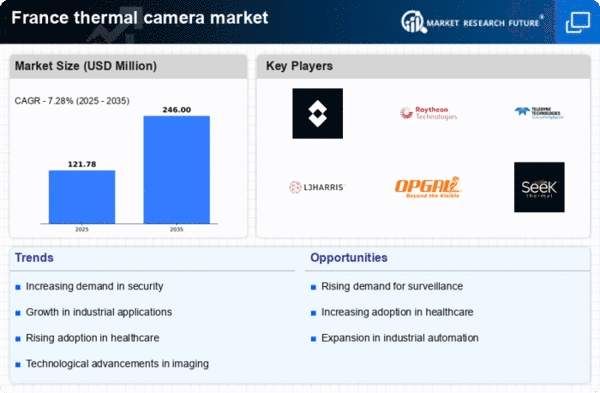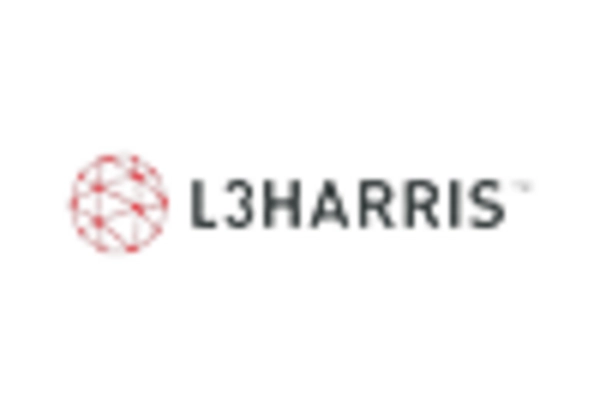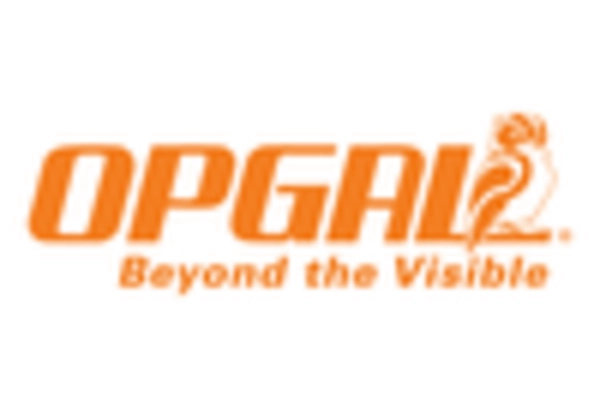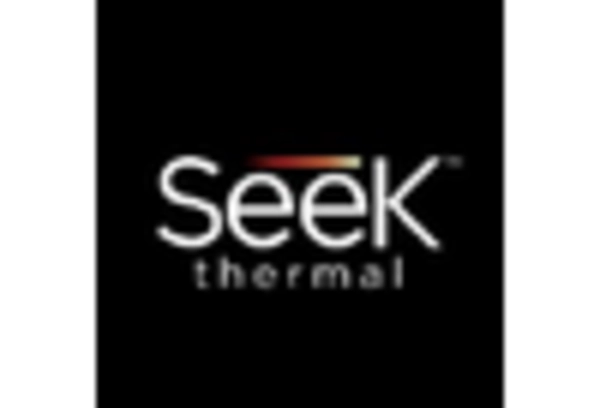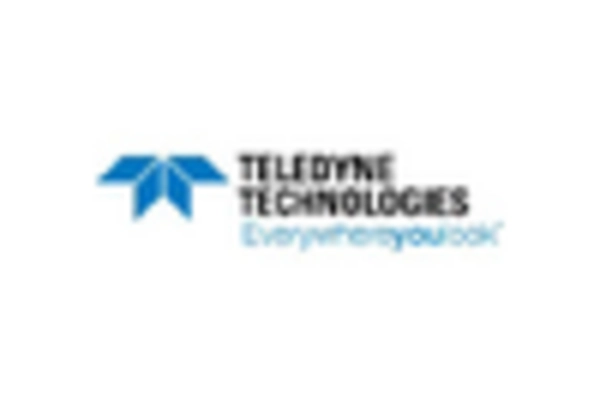Technological Integration with IoT
The integration of thermal cameras with Internet of Things (IoT) technology is emerging as a pivotal driver for the thermal camera market in France. This technological convergence allows for enhanced data collection and analysis, enabling users to monitor thermal data remotely and in real-time. The ability to connect thermal cameras to IoT platforms facilitates predictive analytics, which can lead to improved decision-making processes in various applications, including building management and energy monitoring. As of 2025, it is estimated that IoT-enabled thermal cameras could capture a market share of around 30%, reflecting a growing trend towards smart solutions. This integration not only enhances operational efficiency but also aligns with the broader digital transformation initiatives being adopted across industries in France, thereby fostering growth in the thermal camera market.
Expansion of Smart City Initiatives
The market is poised for growth due to the expansion of smart city initiatives. Municipalities are increasingly adopting thermal imaging technology to enhance urban infrastructure, improve public safety, and optimize energy consumption. Thermal cameras are being utilized for monitoring traffic patterns, detecting heat loss in buildings, and ensuring efficient energy use in public facilities. As cities strive to become more sustainable and technologically advanced, the integration of thermal cameras into urban planning is likely to become more prevalent. By 2025, it is anticipated that smart city projects could contribute to a 20% increase in the thermal camera market. This alignment with sustainability goals not only enhances the quality of urban life but also drives demand for innovative thermal imaging solutions.
Rising Awareness of Safety Regulations
In France, the thermal camera market is significantly influenced by the increasing awareness of safety regulations across various sectors. Regulatory bodies are mandating stricter compliance measures, particularly in construction, manufacturing, and healthcare. Thermal cameras play a crucial role in ensuring adherence to these regulations by enabling real-time monitoring of temperature variations that could indicate potential hazards. For instance, the construction industry is leveraging thermal imaging to identify heat loss in buildings, which aligns with energy efficiency standards. As safety regulations become more stringent, the demand for thermal cameras is expected to rise, potentially increasing market growth by 25% over the next few years. This heightened focus on safety not only enhances operational standards but also fosters a culture of accountability within organizations, thereby propelling the thermal camera market.
Growing Demand in Industrial Applications
The thermal camera market in France is experiencing a notable surge in demand, particularly within industrial sectors. Industries such as manufacturing, construction, and energy are increasingly utilizing thermal cameras for predictive maintenance, quality control, and safety inspections. The ability to detect heat anomalies allows for timely interventions, potentially saving companies significant costs associated with equipment failure. In 2025, the industrial segment is projected to account for approximately 40% of the total market share, reflecting a robust growth trajectory. This trend indicates a shift towards more proactive maintenance strategies, which are becoming essential in competitive industrial environments. As industries continue to embrace automation and smart technologies, the reliance on thermal imaging for operational efficiency is likely to expand, further driving the thermal camera market in France.
Increased Investment in Research and Development
Investment in research and development (R&D) is a critical driver for the thermal camera market in France. Companies are allocating substantial resources to innovate and enhance thermal imaging technologies, focusing on improving resolution, sensitivity, and functionality. This commitment to R&D is likely to yield advanced thermal cameras that offer superior performance and new applications, such as in medical diagnostics and environmental monitoring. In 2025, R&D expenditures in the thermal camera sector are projected to increase by approximately 15%, indicating a strong focus on innovation. This trend not only supports the development of cutting-edge products but also positions France as a competitive player in the thermal imaging landscape, potentially attracting international partnerships and collaborations that further stimulate market growth.

